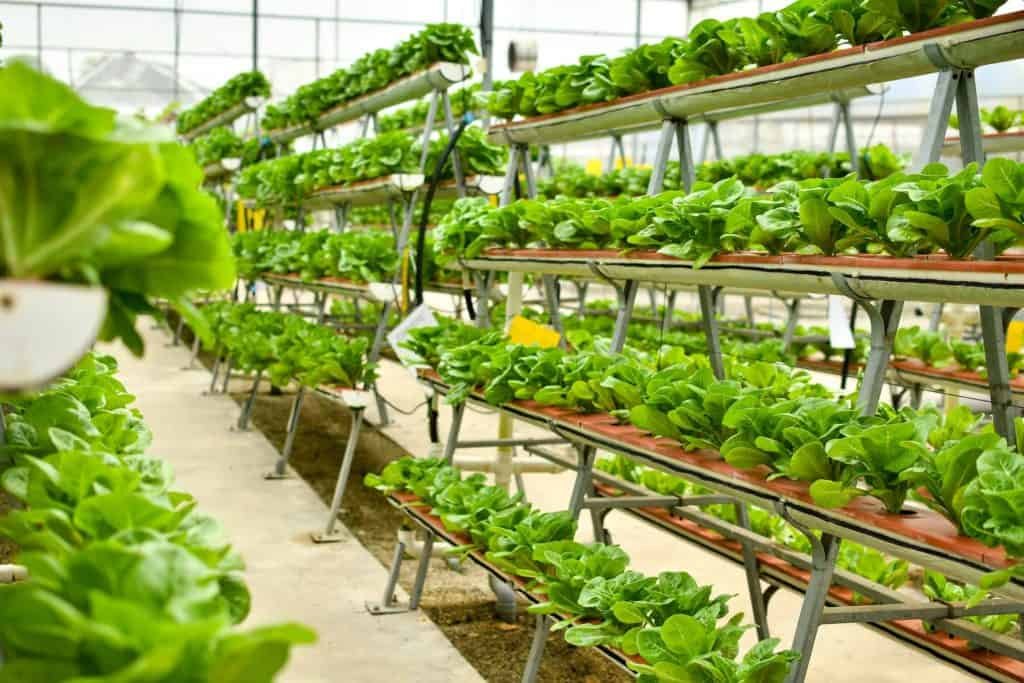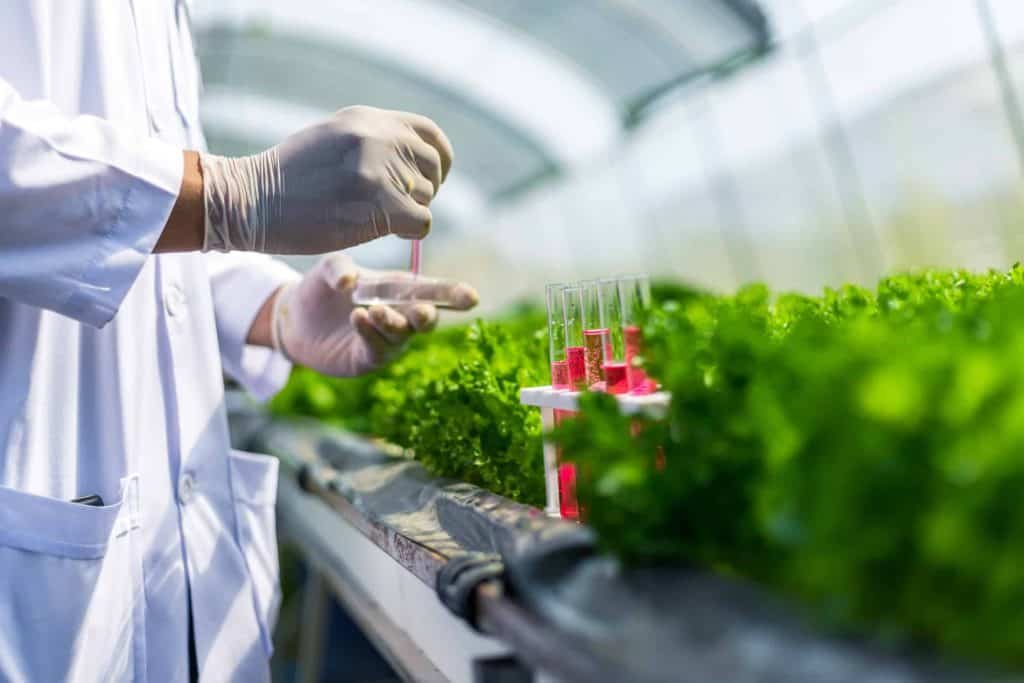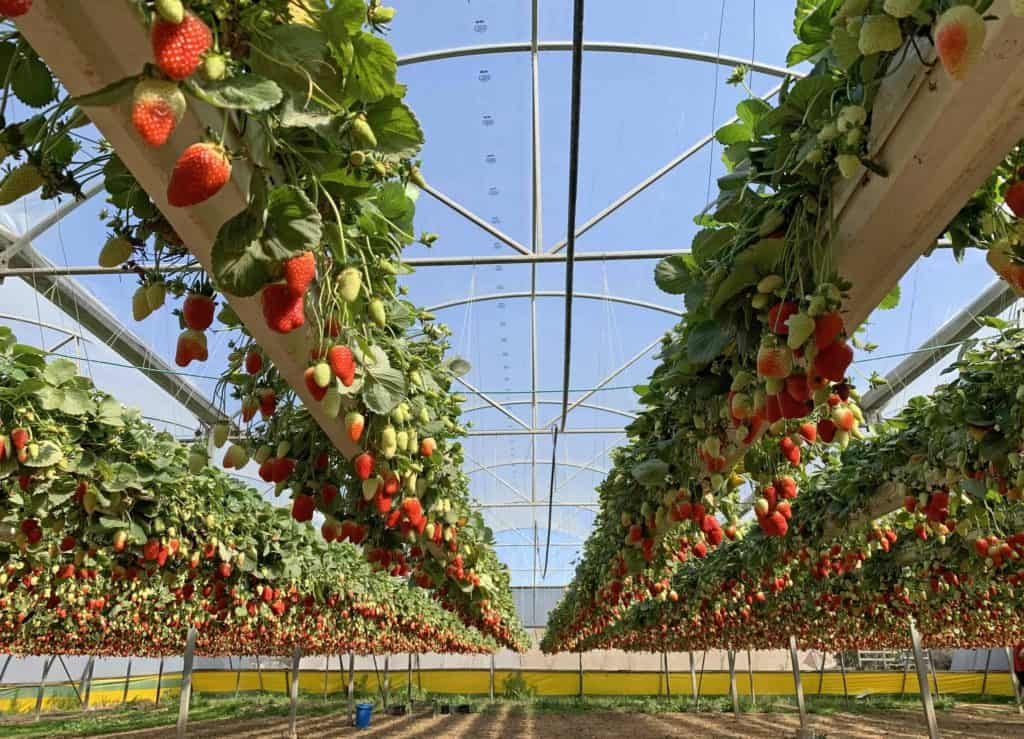The debate if aeroponically and hydroponically grown plants should be labeled as organic can get heated and sometimes hard to follow for those new to organic food. Organic plants are grown in a way that does not harm soil, water, or wildlife, but when the soil is removed from the growing process, whether or not the product is organic or not becomes unclear.
Plants grown in an aeroponic or hydroponic system can be organic. However, this depends on the country the product is grown and sold in. The USA does allow aeroponically and hydroponically produced foods to be certified as organic, although many other countries do not.
While many countries do have a certification for organic foods and medicines, they do not all agree on which cultivation methods the accreditation should be applied to.
As a consumer, knowing whether or not something is actually organic can be confusing when you visit the grocery store. There are items labeled “natural,” “organic,” and “made with organic products.” Many people have purchased organic foods with intention, or perhaps accidentally.
Most of us want to put healthy foods into our bodies. The term organic seems to be synonymous with “healthy,” but the actual definition is ambiguous. What the word organic means and what can be marketed with an organic label is vital information for any consumer to know.
What Does Organic Mean?
The term organic can have different meanings and definitions depending on who you speak to. A biologist will think of the term organic in a different way than a health-conscious shopper. If someone asks if a salad is organic, the answer given can be different, depending on how organic is defined.
Below are a few definitions that everyone should know regarding the “organic” classification:
- “Natural” Label: In the US, the term “natural” is used loosely. The FDA does not have an official definition, and the USDA has lax regulations for the name. The American Society for Nutrition article, Interpreting Food Labels: Natural versus Organic, expands on what it means when products are labeled “natural.”
- “Organic” Label: Products labeled “organic” by the USDA are certified to have been grown and processed following federal standards. These standards require produce to be developed in soil that has not had prohibited substances applied for at least three years. In order for meat to be organic, the animals must be allowed to perform natural behaviors, eat organic feed, and be antibiotic and hormone-free.
- Organic: The word organic refers to something related to or coming from a plant or animal. A cookie, a piece of paper, and a bouquet of flowers are all organic because they are made of things that used to be alive.
- Inorganic: The word inorganic refers to something that cannot be alive, or that does not come from a plant or animal. Water, salt, minerals, and metal are all inorganic because they can never be alive and never were alive.
- Fertilizer: Fertilizers are organic or inorganic substances containing nutrients needed for plant growth. Organic fertilizers refer to manure, compost, or bone meal. They are organic because they are coming from a plant or animal source. Inorganic fertilizers are usually made synthetically and will refer to mineral blends in pellet or granular form.
Once these terms and definitions are understood, the world of organics starts to make more sense. All organically labeled food is also scientifically organic, but not all scientifically organic foods can be labeled organic. If your still confused think of it this way an apple is scientifically organic since it comes from a plant but this same apple cannot be labeled as organic unless certain practices are followed and the orchard is certified as organic.
Reasons in Support of Hydroponic and Aeroponic Foods Being Organic
For a traditional gardener who grows their produce in soil, determining if their zucchini can be labeled organic is tricky. It is even more complicated, though, when you are a gardener growing your zucchini without any soil.
The technique of growing without soil, whether it is hydroponics, aeroponics, or aquaponics, is called hydroculture. Some people firmly believe that hydroculture can and should be considered organic.
Below are several reasons in favor of labeling foods grown in these non-traditional ways as organic:
Hydroponically and Aeroponically Grown Foods can meet Organic Regulations
These growing systems can be operated without the use of the substances, synthetic fertilizers, and pesticides, banned by the USDA regulations.
A hydroculture system using synthetic fertilizer cannot just switch from synthetic to organic and expect a bountiful crop. In order for the change from synthetic to organic to be successful, the hydroculture system needs to support nitrifying bacteria.
Once the system supports these bacteria, the grower can now use commercial organic fertilizers or create a nutrient solution themselves. There is nothing that stops a hydroculture grower from changing to an organic friendly system.
There is No Harm Done to Soils
A traditional farm that does not follow organic practices is called conventional. The farming practices used on traditional farms frequently lead to soil erosion. The Dust Bowl in the 1930s was, in part, caused by conventional farming practices.
Although traditional organic farms also rely on the soil as their growing medium, the health of that soil is a vital element in the organic philosophy. Farmers take extra steps to make sure the soil does not erode and that it is in good condition.
Since hydroponic and aeroponic systems do not use soil, there is no risk of erosion or damage to any land. These hydroculture systems simply remove the soil as an element in the organic code of conduct.
Wetlands, Woodlands, and Wildlife are Conserved
A study in the International Journal of Environmental Research and Public Health found that hydroponic farming uses less land and water than traditional farming methods. This reduction in the use of natural resources means there is less of an impact on local wildlife and habitats.
Hydroculture companies can still have a focus on reducing their waste, using compostable packaging, and minimizing their energy consumption. Just because their plants are not grown in the ground does not mean hydroculture growers are unable to care for the health of the planet.

Hydroponic and aeroponic farms can be constructed vertically instead of spreading out across the ground. By building a vertical farm, the amount of land needed is reduced, and an old factory or vacant lot can transform into a lush paradise.
The arguments supporting organic hydroculture are sound. Regardless of what the growing technique is, any farm can follow the organic philosophy. The hydroculture growers have the same goals as traditional organic farmers; their methods are just a bit different.
Reasons Against Hydroponic and Aeroponic Foods Being Organic
As with any debatable topic, there are those who stand in opposition. Many organic traditional farmers are passionate about keeping hydroculture out of the organic market. Below are some reasons they oppose placing an organic label on plants grown via hydroponics or aeroponics.
Hydroculture Systems are Not Natural
Organic farming is about the whole ecosystem. It supports the soil, water, and biodiversity. By removing soil from the farming processes, the process no longer supports the entire ecosystem.
The USDA’s Organic Practices Factsheet states, “organic producers use natural processes and materials when developing farming systems…”. Fruits, vegetables, and other plants naturally grow in soil; when they are no longer grown in soil, it is no longer a natural process and should not be considered organic.
Many organic farmers feel that no-soil growing methods “…breach one of the main rules of organic production…” (source) By removing soil from the farming method, it no longer aligns with what the organic movement stands for.
Not only is soil-less farming not natural on its own, but hydroponic and aeroponic farms can be enclosed in a building. No longer is spinach a spring crop or tomatoes limited to the summer. By controlling temperature and light inside these buildings, any plant can be grown at any time of the year.

Customers are being Deceived
People purchase organic foods, medicines, and beauty products because they believe they are better for their bodies and the planet. When you buy foods or products that are advertised to have specific values, you assume the growers and makers of those products share those values.
When a customer reaches for organic fruits, vegetables, or packaged foods, they do so on faith that these are better products. However, they are often deceived by the labeling.
The customer thinks the organic products they are buying come from ethical, family-run farms when, more often than not, it is an agribusiness corporation producing them. This is an issue though for both conventional organic farms and hydroculture organic farms.
Many packaged organic brands started small-scale, but, over time, they have been bought out. The table below shows several popular organic brands and the mega-companies, which now own them.
| Organic Brand | Owned By |
| Naked Juice | Pepsi |
| Kashi | Kellogg |
| Muir Glen | General Mills |
| MaraNatha | Hain Celestial |
| Santa Cruz Organic | J.M. Smucker |
A health-conscious shopper sees the organic label on a package of juicy looking raspberries. The shopper wants their family to eat clean, they care about the planet, and they want to support farmers, so they choose those organic raspberries over conventional ones. As they pop a delightfully tart berry into their mouth, they are completely unaware that these berries did not grow in a field kissed by the sun but instead in an industrial greenhouse.
When it comes to berries, one of the global leaders in organic hydroponics is Driscoll. In the US, the company “…represents about 30 percent of the total US berry industry and 64 percent of the organic segment” (Vegetable Growers News).
The ideology behind organic farming does not align with big business, yet according to the Organic Trade Association, in 2018, the US organic industry reached record sales of $47.9 billion. So, simply because a vine of ripe tomatoes has an organic sticker slapped on it, does not mean those organic values run deep.
It is too Easy for Hydroculture Systems to Switch to Become Organic
The regulations are the same across food growing techniques; however, there is a lack of equity when it comes to meeting these regulations. Not using synthetic fertilizers or pesticides is a reasonable rule.
For a traditional farmer, however, these substances must not have been used for at least three years before the farm can be certified as organic. For a farmer that does not use soil, the switch to being certified organic is almost instant since the non-organic fertilizers will leave the nutrient solution much faster than soil.
Organic foods can sell for up to twice the amount as regular foods sell for. Non-traditional soil farmers have an unfair advantage over traditional farmers when it comes to accessing this boost in income.
Where Hydroponic and Aeroponic Foods Can Be Certified as Organic
The fundamentals behind allowing farms to be organic are quite universal, yet the specifics regarding the certification can vary from place to place. Not all countries have organic regulations; some countries have certifications managed by non-government groups, while others have regulations enforced by their government.
Listed below are the stances of several countries, and one union, on whether or not hydroponic and aeroponic foods can be certified as organic. Please note that some of the countries’ regulations only reference hydroponics and not aeroponics.
- USA: Any hydroponic or aeroponic grower can be certified as organic as long as they can show they meet the standards. More information can be found in the USDA’s Organic Hydroponics and Aquaponics Guide.
- Canada: Hydroponic and aeroponic food cannot be certified as organic. More information can be found in Canada’s Organic Production System Standards.
- European Union (EU): Hydroponic food cannot be certified as organic. More information can be found in the European Union’s Commission Regulation.
- Mexico: Hydroponic and aeroponic food cannot be certified as organic. More information can be found in Mexico’s Organic Guidelines.
- Japan: Hydroponic food cannot be certified as organic. More information can be found in Japan’s Organic Standards Q&A.
- New Zealand: Hydroponic food cannot be certified as organic. More information can be found in New Zealand’s Organic Production Rules.
The United States-Canada Organic Equivalence Arrangement (USCOEA) is an arrangement between the two countries to make sure the products imported and exported between them meet the same standards. For a Canadian product to be sold as organic in the US, it must meet the US’s standards and vice versa.
Since Canada does not recognize hydroponic or aeroponic products as organic, any US products grown with these methods and sold in Canada cannot be sold with an organic label.

Closing Thoughts
Can foods grown in an aeroponic or hydroponic system be organic? Simply put, yes, but it is a much more complex topic than most realize.
In order for someone to make a personal decision or for a country to establish a national decision, many factors have to be taken into account. Such as:
What does organic mean? It may be referring to a regulated label on a food or the scientific definition of coming from living matter. How the word is defined can have a dramatically different impact. An apple is organic, but you can also buy an organic apple.
To what extent soil and water are part of the certification process. This may be the most influential factor in the decision-making process and one that is arbitrary. Every country, state, and person can have a different opinion on this.
It is generally agreed that organic labeled foods should be cultivated in a way that does not harm the soil or water. If the method of cultivation does not harm any land but also does not use any soil at all, then the decision-making process gets much more complicated. It comes down to whether or not soil can be taken out of the equation yet still get the same result.
There are small-scale farmers and large agribusiness corporations, regardless of the farming method. Organic labeled foods conjure up images of family farms where animals and produce are raised with tender love and care.
While these idealistic farms do exist, to some extent, the reality is that much of the organically labeled foods in stores are linked to corporations. This holds true for both traditional farms using soil as well as for hydroculture farms.
The equity of getting certified. In the US, a traditional farm must wait three years from the last application of a prohibited substance before it can be approved as organic. This time allows the substances to dissipate from the soil. A hydroponic or aeroponic farm does not have to wait this long, giving them faster access to the organic market.
The deciding body must take all of these factors, and more, into account. For countries to make this decision, they also have to consider how it will impact their trade. But, ultimately, the answer to the question of whether or not aeroponic and hydroponic foods can be organic comes down to perspective.
